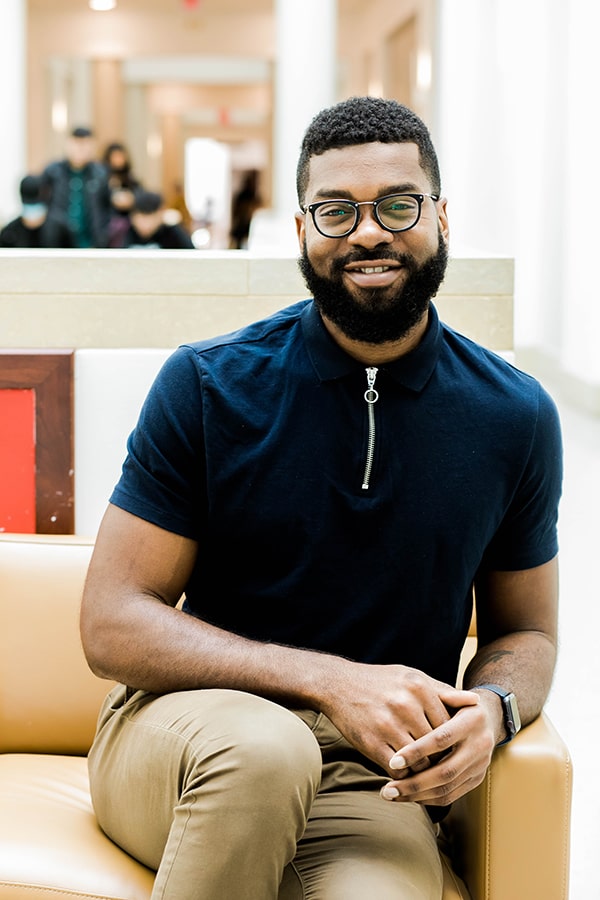Faculty Spotlight: Don Holmes
By Stacy Kish
Don Holmes, a lecturer in writing and communication in the Department of English, is interested in eighteenth and early nineteenth-century African American rhetoric, literacy and language. His research focus is on the narratives of his early ancestors to illuminate the methods they used to negotiate their voices into public discourse.
Tell me about your scholarly work?
In academia we try to put people into certain camps. In early Black literature and the early Black lived experience, we do a disservice by separating them into literary or rhetorical fields. My work is trying to figure out how these worlds are quite united and to clarify how early Black speakers, writers and practitioners contributed to natural rights, civil rights and the very ideal of democracy itself.
How is your scholarly work adding to the greater field?
We think about African American vernacular English as a cultural artform as well as a language. We have to look at a literary document and think about the rhetoric that the author is using. I am showing how African American speakers have participated in the concept of democracy even when the United States was a functioning slave society. The speakers had a pressing need to — as Langston Hughes stated — make America be America. Rather than thinking of Black people as coming to the table at a certain point in history, there are rhetorical functions that they were thinking about and contribute to our contemporary understanding of suffrage and economic stability. My work is expanding the way teachers can teach about these earlier Black writers and speakers but also gives students a better understanding and appreciation of long and traditional enterprise of Black speakers around social and political issues.
How did you become interested in this topic?
I started down in the grand field of English in 6th grade when my reading teacher saw I had a penchant for reading. She saw that reading provided an escape to some of the issues I was living with. Since the 6th grade, I was invigorated by reading the experiences of others. When I went to college, I knew that I would study English. I first had a desire to study the Harlem Renaissance; however in a survey of African American literature, I was exposed to Phillis Wheatley and Venture Smith. I did not realize there were Black people writing in English that early and it blew my mind. I had never been exposed to these two historical figures, and I wondered why haven’t they been included in any of my education. There is so much more work to uncover about these peoples’ lived experiences and how they continue to contribute to our contemporary thinking at the intersection of sex, class and race. I want to paint more pictures of their lived experiences to give us a better understanding of the early national period in the United States. I have never looked back because I understand paramount importance of illustrating how these figures participated in early concepts of democracy.
What are you most excited to accomplish as a faculty member at CMU?
I want my students to understand that everyone should have access to their own language and be able to use this language to talk about important issues that are useful to them and their peers. My goal is to put the students at ease during these hard conversations. I am also excited to have the opportunity to continue my research on Phillis Wheatley. My goal is to press other scholars to rethink Phillis Wheatley’s life and legacy.
What are your goals for the next generation of scholars?
I am a teacher first and a scholar second. I come to CMU with a vast array of my own lived experiences. I hope to encourage my students, peers and colleagues to understand the importance of what the human experience gives us when we tap into it. I would encourage everyone to embrace an appreciation for good teaching practices not only in your content area but across the humanities. I also encourage all students in every major to explore the historical roadmap that led us to our present moment.
The Faculty Spotlight series features new and junior faculty at the Dietrich College of Humanities and Social Sciences at Carnegie Mellon University. Stay tuned for our next installment to learn more about the dynamic and engaging research and scholarly work being conducted in the college.
